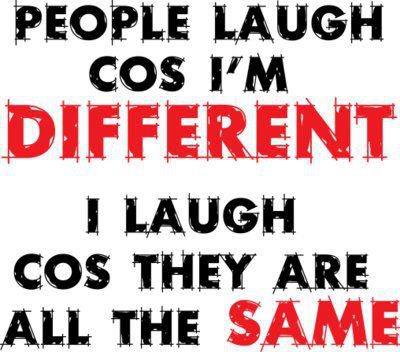What seven things can geniuses teach us about being more creative?
.
Work hard
Hard work (often more than 10,000 hours worth) is vital.
…the lessons that the rest of us can learn from individuals who are highly creative. I culled three: (1) Creative individuals spend a considerable amount of time reflecting on what they are trying to accomplish, whether or not they are achieving success (and, if not, what they might do differently).
This type of Deliberate Practice and dedication is what it takes to become an expert. Formal education isn’t as important: most creative geniuses had the equivalent of a college dropout level of schooling.
Be curious and driven
For his book Creativity, noted professor Mihaly Csikszentmihalyi did interviews with 91 groundbreaking individuals across a number of disciplines, including 14 Nobel Prize winners. In 50 Psychology Classics Tom Butler-Bowdon summed up many of Csikszentmihalyi’s findings including this one:
Successful creative people tend to have two things in abundance, curiosity and drive. They are absolutely fascinated by their subject, and while others may be more brilliant, their sheer desire for accomplishment is the decisive factor.
Live in a big city
There’s a reason you’re more likely to find artists in cities. Cities are more creative and their inhabitants are too.
Via Where Good Ideas Come From: The Natural History of Innovation:
A city that was ten times larger than its neighbor wasn’t ten times more innovative; it was seventeen times more innovative. A metropolis fifty times bigger than a town was 130 times more innovative… the average resident of a metropolis with a population of five million people was almost three times more creative than the average resident of a town of a hundred thousand.
Balance creative teams
The most creative teams are a mix of old friends and new blood.
Via Imagine: How Creativity Works:
“The best Broadway teams, by far, were those with a mix of relationships,” Uzzi says. “These teams had some old friends, but they also had newbies. This mixture meant that the artists could interact efficiently— they had a familiar structure to fall back on— but they also managed to incorporate some new ideas. They were comfortable with each other, but they weren’t too comfortable.”
Keep lots of ideas banging around in your head
Having multiple hobbies allows your brain to subconsciously compare and contrast problems and solutions, forming new connections at the margins of each.
Via Where Good Ideas Come From: The Natural History of Innovation:
Legendary innovators like Franklin, Snow, and Darwin all possess some common intellectual qualities— a certain quickness of mind, unbounded curiosity— but they also share one other defining attribute. They have a lot of hobbies… That cognitive overlap is what makes this mode so innovative. The current project can exapt ideas from the projects at the margins, make new connections.
Similarly, reading multiple books at the same time vs serially lets your brain juxtapose new ideas and develop new connections.
Via Where Good Ideas Come From: The Natural History of Innovation:
By compressing their intake into a matter of days, they give new ideas additional opportunities to network among themselves, for the simple reason that it’s easier to remember something that you read yesterday than it is to remember something you read six months ago.
Work on projects because of passion, not money
This is what produces the best art and, eventually, the most success.
Via Daniel Pink’s very interesting book Drive: The Surprising Truth About What Motivates Us:
“Those artists who pursued their painting and sculpture more for the pleasure of the activity itself than for extrinsic rewards have produced art that has been socially recognized as superior,” the study said. “It is those who are least motivated to pursue extrinsic rewards who eventually receive them.”
Everything you need to know to be more creative is here.
Join 45K+ readers. Get a free weekly update via email here.
Related posts:
What are the four principles that will lead you to breakthrough creativity?




